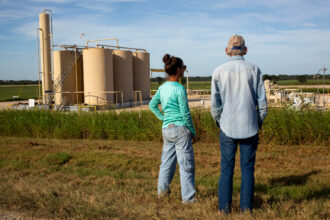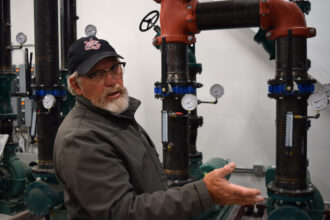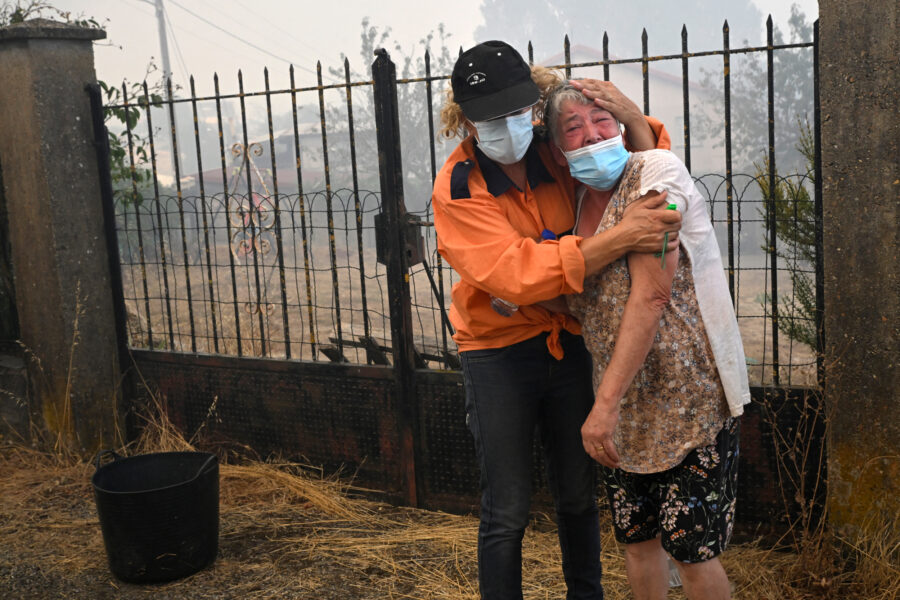Updated March 13 with the U.S. National Academies review of the National Climate Assessment.
As some of the world’s biggest polluters resist efforts to address climate change—most glaringly, the United States—thousands of scientists from countries that make up the Commonwealth of Nations say their governments need to take bolder steps to lower greenhouse gas emissions.
On Monday, the national science academies of 22 Commonwealth countries, including from the UK, Canada, India and Australia, issued a “Consensus Statement on Climate Change,” declaring that the “Commonwealth has the potential, and the responsibility, to help drive meaningful global efforts and outcomes that protect ourselves, our children and our planet.”
The statement comes one month before the Commonwealth Heads of Government Meeting in London, where leaders intend to discuss sustainability and climate change.
Monday’s statement warns that countries need to adopt stronger measures to limit global temperature rise to less than 2 degrees above pre-industrial levels—the goal of the 2015 Paris climate agreement. The statement points out that, even if countries meet their existing greenhouse gas reduction targets under the agreement, a recent report from the United Nations projects “a global temperature rise of 3 degrees Celsius above pre-industrial levels.”
In the statement, scientists from 22 national academies of sciences call on the government leaders to use the “best possible scientific evidence to guide action on their 2030 commitments” under the agreement and “take further action to achieve net-zero greenhouse gas emissions during the second half of the 21st Century.”
Getting to Net Zero Emissions
The academies say that the Commonwealth countries will have to hit net zero emissions by midcentury to meet the Paris goals, though developing countries might need a longer time frame.
“Recognising different capacities, challenges and priorities, the approaches of each nation will not be the same,” David Day, secretary of science policy at the Australian Academy of Science, said in a statement. “But, they must be informed by the best available scientific evidence, monitoring and evaluation.”
The 53 countries of the Commonwealth comprise former territories of the British Empire, including Botswana, Zimbabwe, Pakistan and Bangladesh, and are home to about 2.4 billion people.
“This joint consensus statement is an important step as we work together to showcase the best scientific evidence, monitoring and evaluation on climate change,” Chad Gaffield, president of the Royal Society of Canada, said in a statement. “By coming together under the common voice of the Commonwealth nations, we are leveraging the dedication, expertise and insight of experts from all around the world to help inform action on climate change and improved sustainability.”
The U.S. National Climate Assessment
Despite the Trump administration’s ongoing efforts to rollback climate policies, a federally mandated scientific report on climate risks to the United States is on track, the U.S. National Academies of Sciences, Engineering and Medicine says. A National Academies panel reviewed the draft of the Fourth National Climate Assessment, which assesses climate risks to regions, communities and sectors of the economy, and gave the draft report mostly positive marks this week.
Among its recommendations, the panel encouraged the government’s scientists to add more examples of solutions being undertaken by the private sector and governments to address climate change risks. It also suggested more attention to the complex nature of climate change when discussing the impact of global warming on cities, energy, wildfires, ecosystems and coastal areas.
The first volume of the National Climate Assessment, the Climate Science Special Report, was released last year by 13 federal agencies. It describes climate changes that are already happening and clearly states that humans have directly contributed to global warming.
About This Story
Perhaps you noticed: This story, like all the news we publish, is free to read. That’s because Inside Climate News is a 501c3 nonprofit organization. We do not charge a subscription fee, lock our news behind a paywall, or clutter our website with ads. We make our news on climate and the environment freely available to you and anyone who wants it.
That’s not all. We also share our news for free with scores of other media organizations around the country. Many of them can’t afford to do environmental journalism of their own. We’ve built bureaus from coast to coast to report local stories, collaborate with local newsrooms and co-publish articles so that this vital work is shared as widely as possible.
Two of us launched ICN in 2007. Six years later we earned a Pulitzer Prize for National Reporting, and now we run the oldest and largest dedicated climate newsroom in the nation. We tell the story in all its complexity. We hold polluters accountable. We expose environmental injustice. We debunk misinformation. We scrutinize solutions and inspire action.
Donations from readers like you fund every aspect of what we do. If you don’t already, will you support our ongoing work, our reporting on the biggest crisis facing our planet, and help us reach even more readers in more places?
Please take a moment to make a tax-deductible donation. Every one of them makes a difference.
Thank you,















